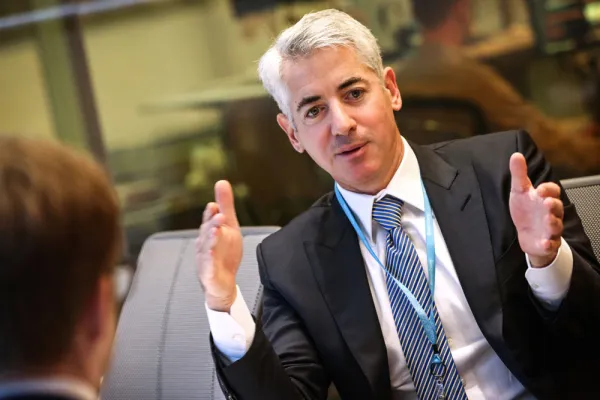Allocators want to invest with asset managers they trust to always act in their best interests. But at best, all they get is the illusion of trust.
The due diligence process that allocators perform to determine whether a manager is indeed trustworthy starts with assessing whether the manager has a legitimate business: Does it have the staff, operations, governance structure, reporting and controls, regulatory standing, and values necessary to consistently act as a good steward of their assets? This is a straightforward operation that can be objectively supported with standard tools and generally available evidence obtained through things like personal interviews, background checks, due diligence questionnaires, and review of key documents. If thoroughly done, this process can provide key insights.
If a manager clears this hurdle, allocators must then determine that manager’s investment competency: Is the manager’s investment process capable of providing the expected returns? This is a nontrivial question. Strategy consultant Chestnut Advisory Group suggests that “investors’ default belief is that any given asset manager is competent” — but the well-documented underperformance of active managers should cause allocators to adopt a less magnanimous attitude.
The manager vetting process offers only the simulacrum of objectivity, with allocators often starting by dissecting the manager’s auditable investment returns. But as we all know, past performance is not indicative of future results.
To discover a manager’s competency, allocators must evaluate the investment process that is the source of the returns. And here’s where things get somewhat murky — and where allocators, for reasons of their own making, lose control of the process.
Through a combination of shared language (“We take a bottom-up approach to find high-quality companies that enjoy high barriers to entry that should sustain supernormal profits on existing assets for a long time”) and what the Financial Times’ Robin Wigglesworth describes as “pseudo-philosophical metaphors and references,” managers reveal just enough details of their investment processes to provide allocators with a cairn from which they can then orientate themselves.
Inevitably, managers reach a point in their narratives where they feign that there are lines they cannot cross without divulging their “edge” (“I cannot reveal our secret sauce”). Managers fall back on the excuse that sharing any more information would jeopardize their businesses.
This volitional omission indicates a manager’s fundamental distrust of the allocator because it implies that the allocator would act in a way that would undermine the manager’s edge. (The alternative explanations are no less problematic: Either the managers cannot truly explain their processes because they do not fully understand them or the secret sauce itself is actually not all that secret and could be easily reproduced.)
Why do allocators settle for this Kabuki-esque performance? Research by Chestnut Advisory indicates that the top factor driving the decision to hire a manager is a strong understanding of the manager’s investment process. How can an allocator make that decision when the manager chooses to withhold critical information about its process — and how can the allocator trust that a manager will always act in its investors’ best interests?
Chestnut claims that there are two determinants of trust, competency and warmth — and that “no amount of competence can compensate for a lack of warmth.” So, despite this informational deficiency, trust can be established if the manager shows “warmth.”
Unsurprisingly, Chestnut cites an old chestnut to make its point: “The most admired asset managers are perceived as extremely warm and competent. We often refer to Warren Buffett as the classic embodiment of asset manager strength across these two key traits.”
But was not Bernie Madoff also perceived for decades by hundreds of investors and the industry at large as “extremely warm and competent”? Madoff had close relationships with his investors, a stellar personal and professional reputation supported by media coverage, affiliations with well-regarded third parties, substantial personal wealth, large philanthropic contributions, personal endorsements, a clean bill of health from regulators, large assets under management, a blue-chip client list, and an impressive and long performance track record. All the available data pointed to Madoff as a warm and competent manager — and therefore, worthy of trust.
But in reality, as researchers point out, Madoff “created an illusion of trustworthiness that investors were apparently unable to see through.”
(The collapse of crypto exchange FTX further reveals the feebleness of warmth as the critical element in the determination of trust.)
Some may say Madoff is an exceptional case, but it reveals the self-imposed limitations of allocators’ due diligence processes.
As one asset owner told me, “If you want institutional money, or if you are a steward of institutional money, you should be willing to accept the most invasive due diligence on the planet . . . . But [allocators] may not do it because the tough questions make them worried they’ll be seen as dumb or rude. But an early mentor once told me, ‘If you don’t understand it, it’s not your problem.’ At best, they’re not explaining it well; more likely than not they’re full of shit.”
“All things that work can be boiled down into simple concepts that even laypeople can understand,” the asset owner said. “You may have to get to that understanding through asking questions and getting good answers. But if a gulf remains, that gulf is probably full of BS.”
He’s right: Allocators settle for too little.
The construction of trust is the product of our own making. If there are limitations in the manager due diligence processes, those are in no small part due to allocators being unable to imagine transcending the limited choices that managers offer them. To truly trust a manager, allocators must, as the French say, changer son fusil d’épaule: put the gun on the other shoulder.
Angelo Calvello, Ph.D., is co-founder of Rosetta Analytics, an investment manager that uses deep reinforcement learning to build and manage investment strategies for institutional investors.






